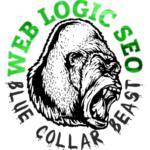Digital Marketing Cost Comparison: SEO vs Google Ads (PPC)
Organic Search Engine Optimization (SEO) and Google Paid Advertising (PPC) are two substantial strategies in the digital marketing spectrum. Both have their merits and can drive traffic and conversions. However, over time, organic SEO has proven to be more cost-effective, especially in the long run. This cost-effectiveness exponentially increases as time passes due to certain inherent characteristics of SEO and how search engines operate.
First, let’s look at the fundamental differences between organic SEO and Google Ads (PPC).
Organic SEO:
Organic SEO is the practice of optimizing your web pages to make them reach a high position in the organic results of search engines. It involves strategies such as keyword optimization, content creation, site architecture optimization, and building backlinks. The initial investment in organic SEO can be considerable, both in terms of financial resources and time. It requires a strong understanding of how search engines work, keyword research, content creation, website optimization, and backlink cultivation. However, once a website has been properly optimized and begins to rank in search engine results, the cost per acquisition decreases dramatically.
Google PPC:
Google Paid Advertising, or Pay-Per-Click (PPC), is a model of internet marketing where advertisers pay a fee each time one of their ads is clicked. Essentially, it’s a way of buying visits to your site rather than attempting to earn those visits organically. PPC advertising requires an ongoing investment. Every click to your website costs money, and once you stop paying for those clicks, the traffic ceases. Moreover, the cost per click can vary widely based on competition for particular keywords or times of day, making budgeting for PPC campaigns challenging.
Why Organic SEO is More Effective than Google PPC
With organic SEO, as time progresses, the website becomes more recognized by search engines due to consistent content updates, keyword relevance, and backlinks from other sites. This recognition leads to higher search rankings, which result in more visibility and increased traffic. As the site’s authority grows, it can rank high for a broader range of keywords, attracting a diverse audience interested in various aspects of what the business offers. This compounding effect increases the value of the initial investment in SEO exponentially over time. As the website’s organic traffic increases, so too does the potential for conversions. Since organic SEO targets users who are actively looking for specific products, services, or information, these users are typically further along in the buying cycle and more likely to convert than users who click on paid ads. This leads to a higher return on investment (ROI) for organic SEO efforts.
Furthermore, studies have shown that organic listings are more trusted by users than paid listings. This trust can translate into higher click-through rates (CTR) for organic listings, leading to more traffic and potential conversions. Over time, the cost-effectiveness of organic SEO can increase as users become repeat visitors, share the site with others, and become loyal customers or clients. On the other hand, paid advertising campaigns require constant funding to maintain visibility and traffic levels. While they can provide immediate visibility and quick influxes of traffic, the cost per visitor remains constant or can even increase as competition for keywords intensifies. Unless the budget for these campaigns increases, their effectiveness can plateau or even decrease over time. Another critical factor to consider is the durability of SEO. A well-optimized website with quality content and a network of high-quality backlinks will maintain its search engine rankings for a longer period, even if SEO efforts are reduced or paused. This is not the case with PPC, where stopping the campaign means an immediate disappearance from the paid sections of the search results.
Lastly, organic SEO aids in building a sustainable online presence. It contributes to a better, more user-friendly website and encourages the creation of valuable, unique content. It also encourages the establishment of a robust social media presence, as social signals may impact SEO rankings. All these aspects contribute to brand recognition, customer loyalty, and long-term online success.

